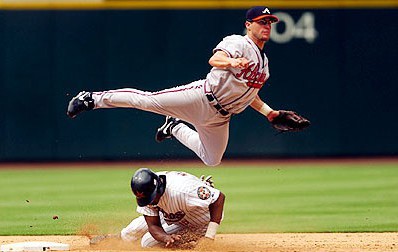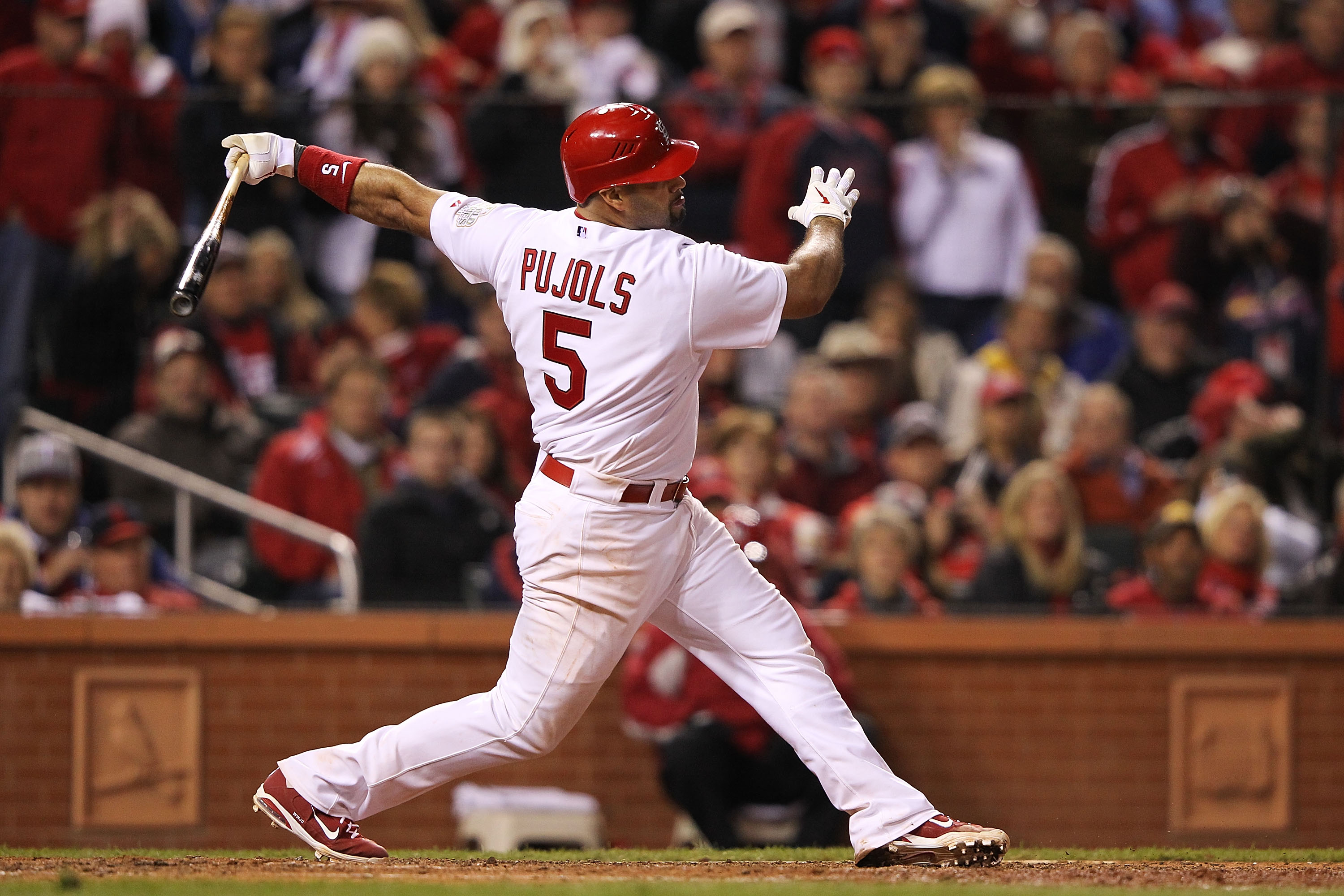In a recent article, I took a look at which offenses frequently exceed or play below Vegas expectations. In part two, I will be doing the same study, but this time applying the Vegas trends to Pitchers. I will leave the benchmark set the same as last time at 3.7 projected runs for the opposing offense, and take a look at the results on both sides of that. To start with, applying the “Opposing Vegas Runs Is Between 3.7 and 7” filter causes pitchers to lose 0.43 points from Plus/Minus on FanDuel and 0.82 points on DraftKings.
When I ran this study on hitters, I found that only three teams finished in the green during the 2014 season when projected by Vegas to do poorly. For pitchers, I’m not sure that looking at the results on a team level is really going to be helpful. Instead, I’m going to go straight to looking at which specific pitchers performed the best and worst when applying the Vegas Runs filter.
Here are several pitchers who consistently have played above Vegas expectations during the 2014-2015 seasons when Vegas had their opposition scoring 3.7+ runs (minimum of 20 starts in result set):
| Player | +/- |
| Drew Hutchison | +1.16 |
| Chase Anderson | +1.33 |
| Chris Archer | +4.33 |
| Wei-Yin Chen | +1.07 |
| Phil Hughes | +0.65 |
| Jorge De La Rosa | +0.84 |
| Alfredo Simon | +0.82 |
| Edinson Volquez | +0.95 |
| Dallas Keuchel | +3.07 |
| Collin McHugh | +2.81 |
| Aaron Harang | +2.02 |
| Trevor Bauer | +0.94 |
| Collin McHugh | +2.81 |
| Jason Hammel | +1.65 |
| Roenis Elias | +1.83 |
| Jake Arrieta | +3.01 |
| Matt Shoemaker | +5.02 |
| Henderson Alvarez | +1.01 |
| Danny Salazar | +5.13 |
Probably the most common theme on the above list is young players who were breaking out that Vegas was slow to react to. If you’re looking to catch lightning in a bottle with a pitcher that Vegas doesn’t like, taking a chance on a young pitcher seems to be your best option. Matt Shoemaker, Danny Salazar, and Chris Archer in particular posted ridiculously high Plus/Minus scores on FanDuel when the “Opposing Vegas Runs Is Between 3.7 and 7” filter is applied.
Ace pitchers do not have many results within the filter because Vegas usually does not project them to allow more than 3.7 runs, but when they do appear in the results, they typically fare pretty well. I’m adding a filter that only includes matches for Sale, Kershaw, Cole, Cueto, Tanaka, Harvey, Darvish, Scherzer, and Greinke. The only pitcher who even had more than six games where Vegas projected 3.7+ runs from the opponent in 2014-2015 was Scherzer with 9. Overall, the results were quite good, adding 1.43 to Plus/Minus collectively. In fact, only eight of the 42 matches resulted in less than 10 points on FanDuel. Here were some of the top games posted by aces when Vegas projected 3.7+ from the opposition:
Here were the players who lost the most value when Vegas expected them to do poorly:
| Player | +/- |
| Tim Lincecum | -2.88 |
| Edwin Jackson | -2.46 |
| Justin Masterson | -2.42 |
| Trevor Cahill | -2.25 |
| C.J. Wilson | -1.85 |
| Ryan Vogelsong | -1.84 |
| Jeff Samardzija | -1.52 |
| Justin Verlander | -1.48 |
| Kyle Kendrick | -1.41 |
| Rubby De La Rosa | -1.36 |
A few of these guys are notorious for uneven performances, making Vegas Projected Run Total a particularly useful tool when creating daily projections in their cases.
Now, looking on the other end, here’s what the results look like for pitchers when Vegas projected the opposition to score 3.7 runs or fewer:
Simply picking pitchers on the right side of 3.7 projected runs would result in a swing of 1.3 points for pitchers on FanDuel and over 2.5 on DraftKings to Plus/Minus. Several players have been individually excellent when this filter is applied. Here are a few of the top performers when Vegas projects fewer than 3.7 runs against (minimum of 20 starts):
| Player | +/- |
| Jacob deGrom | +3.83 |
| Tyson Ross | +2.98 |
| Clayton Kershaw | +2.92 |
| Corey Kluber | +2.31 |
| Zack Wheeler | +2.09 |
| Jon Lester | +1.96 |
| Johnny Cueto | +1.87 |
| Max Scherzer | +1.61 |
Here, we see a bunch of high-K guys that are able to make up for an extra run allowed with strikeout points. It’s good to know which pitchers perform well when Vegas projects them to, but honestly, isn’t that what you would expect? How about the pitchers that bomb when Vegas has them in a good spot? Here were the pitchers who lost the most value when the Under 3.7 Runs filter is applied:
| Player | +/- |
| Shelby Miller | -2.42 |
| Mike Minor | -1.9 |
| Tim Hudson | -1.54 |
| John Lackey | -1.38 |
| Zack Wheeler | +2.09 |
| Henderson Alvarez | -1.19 |
| Yovani Gallardo | -1.08 |
| Chris Archer | -0.98 |
| Yordano Ventura | -0.93 |
It makes sense that light strikeout guys like Alvarez and Hudson would lose the most value in this category since any unexpected runs can’t be balanced out with points from Ks.
So why is one of the top K guys in the league, Chris Archer, listed in the results? He was also listed on the other end of the results, so he is clearly a hard guy for Vegas to figure out. One area Vegas has been particularly bad with Archer is division games. Sorting by worst games within the filter, almost all of them were against AL East foes:
Whereas the vast majority of teams fell in line with Vegas projections when looking at hitters, there are a lot of examples on both sides of pitchers going against Vegas. There are more results overall because I grouped offenses by team, but I don’t think that accounts for all of it. Every pitcher is so different and it makes sense that Vegas would be better at predicting certain ones over others.
By going through this study, what I found the most interesting was the types of pitchers that added value when Vegas projected their opponent to score 3.7+. Vegas did not respond to young pitchers who experienced early success right away. There are certainly plenty of examples of young pitchers who pitched well on their debut who subsequently got lit up, but this may not be a bad risk/reward type play in large tournaments.
Second, ace pitchers were able to perform above expectations even when Vegas had them in a bad spot and even when the results were poor, they tended not to be disastrous.
Lastly, the degree to which Chris Archer’s performance has deviated from Vegas projections is surprising. He lost close to a point on FanDuel when Vegas had him in a good spot and gained close to 4.5 when Vegas had him doing poorly. Those huge swings have made him perhaps the most difficult player for Vegas to peg over the last two years.









